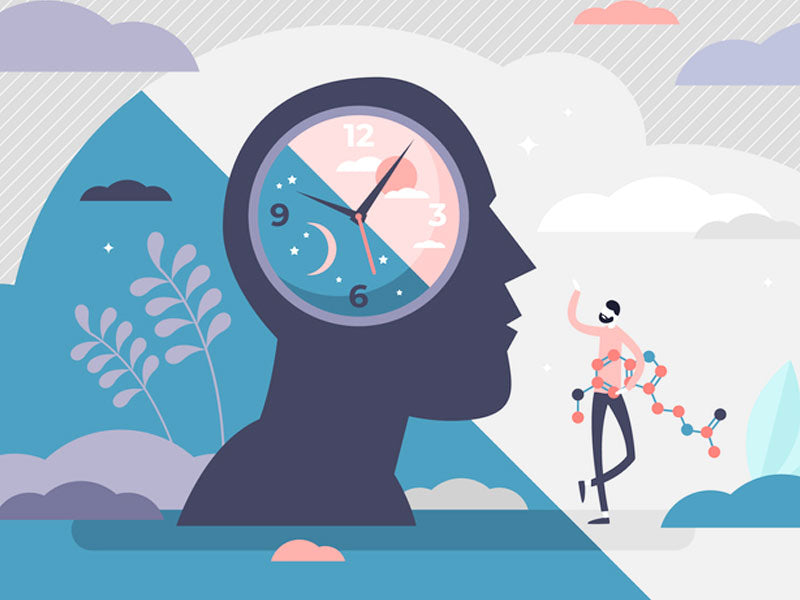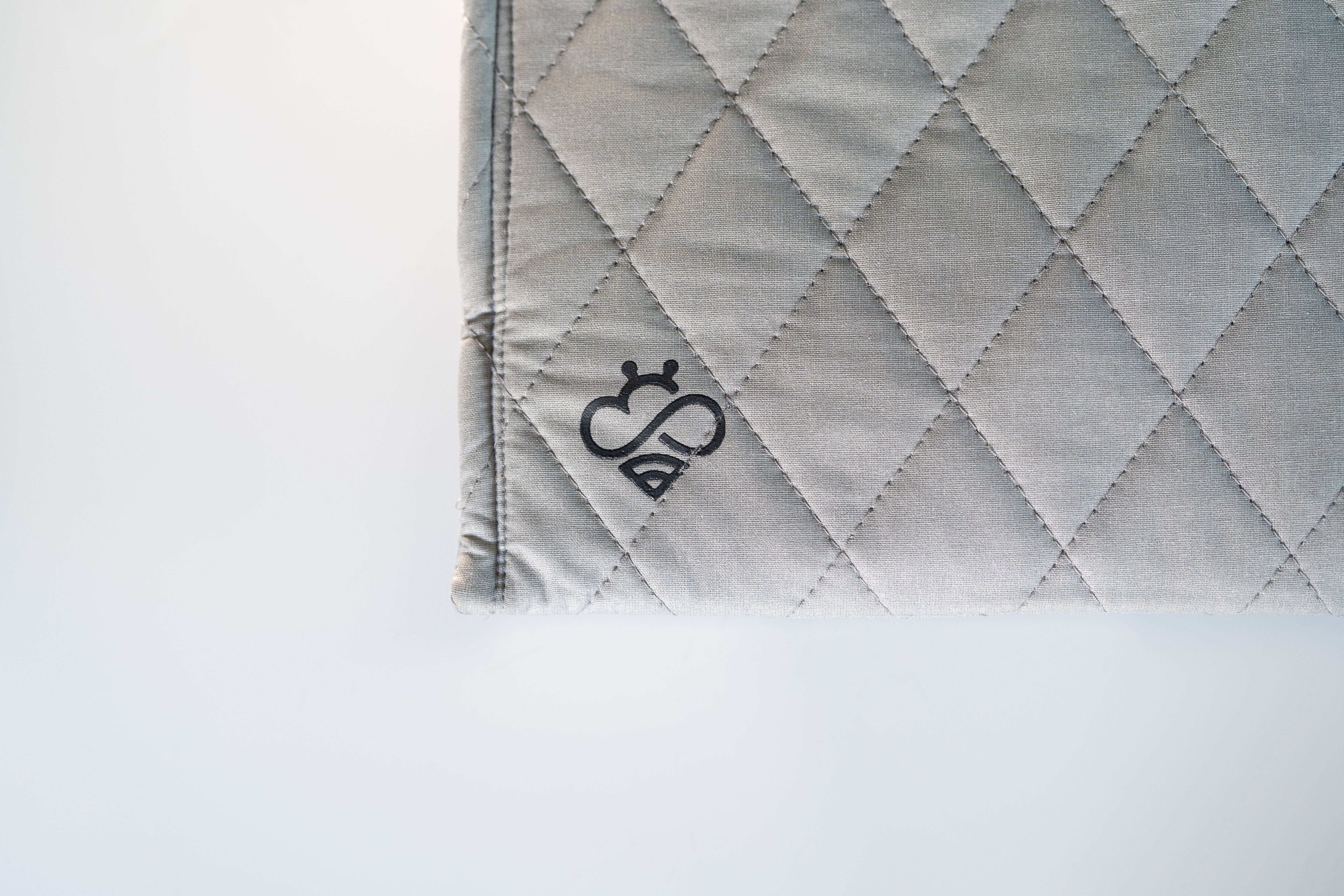When you think of circadian rhythms, you probably think of our natural sleep cycle-wake at dawn, sleep after dusk. Circadian rhythms are biological cycles that correlate with the experience of light throughout the day. This cycle also plays a part in our hunger, energy levels, and body temperature throughout the day.
While many things can affect our natural rhythms, light is the most influential. A part of our brains, the suprachiasmatic nucleus acts as our body’s time-keeper. This group of neurons respond to light with extreme sensitivity. The master clock sends signals to our body to release different hormones and proteins according to the light it receives.
Changes to our circadian rhythm get us into trouble
When our environment’s light is naturally or artificially altered, our bodies react to this change. Jet lag, overnight shifts, staying up late for work, and blue-light emissions from electronics are common ways we disrupt our natural sleep cycle.
When we fall out of rhythm, our bodies get into trouble. We may have a hard time falling or staying asleep, staying awake, or we might feel uneasy and irritable. Long periods of poor sleep can lead to depression and even correlate with developing dementia.
It’s noticeable when a coworker or friend hasn’t slept well. Lack of sleep makes it difficult to make good decisions and can cause us to get snippy with others.
Luckily, there are a few methods to get you back in sync with your natural rhythm and regain the benefits of healthy sleep.
4 Routines to Realign Your Rest
The best way to reset your internal clock is to schedule your daily activities in alignment with your natural circadian cycles. Your mental, physical, and emotional health will all improve.
When your mind is at ease and your emotions are grounded, relationships with other people will become easier and more fulfilling. You’ll be able to focus better and get tasks done.
Here are a few routines you can try to better support your body's natural circadian rhythm.
1. Have a bedtime routine
Daily rituals for waking up and going to sleep are shown to directly support mental agility and memory. Want to be more alert during the day? Create a bedtime routine with Hapbee.
Set yourself up for success by waking up and winding down on a steady schedule. This allows your body to harmonize with its circadian rhythm. If your body knows when to release hormones to wake up and settle down, you’re less likely to experience grogginess or bouts of insomnia.
By following a routine, your rest will be deeper than if you were to fall asleep at different times each night.
Hapbee has On-Demand Routines ready for those struggling with getting into better sleep habits. Signals like Relax, Drowsy, and Deep Sleep were created to help troubled sleeper fall and stay asleep through the night.
2. Get moving with physical activity
Movement allows you to check in with your body and ground yourself before jumping into the daily stressors of life. Light stretching and mindful exercises such as yoga will wake up your muscles and help raise your temperature to shake off any lingering grogginess. Here's how to leverage your Hapbee during stretching.
When you wake up after a good night’s sleep, you’re more likely to have the energy for a high-intensity workout. Activities that get your heart pumping are best saved for the middle of the day, with at least one hour between workouts and bedtime.
A study on college athletes found that high-intensity workouts in the evening negatively affect morning risers, but with less effect on “night owls.” If you allow proper time to decompress before bed, you may find that an evening workout could help you fall asleep faster.
3. Manage your meals
Your digestive system is also aligned with the circadian rhythm. Keep a steady cycle of meals to match your energetic needs throughout the day.
You can improve cardiovascular health and metabolism by timing meals to not interfere with your rest. Limiting meals to the most wakeful hours of the day allows your digestion and sleep cycles to support each other.
The digestive system needs time to “wake up” before getting the day started. Have a cup of coffee or a lightly-caffeinated tea to kick start digestion without overloading it with breakfast right away.
It’s hard for your body to digest a heavy meal or sweets close to bedtime. The wrong food can hinder your metabolism and quality of sleep. Instead, choose melatonin-heavy snacks like tart cherries and nuts, or drink a relaxing tea to wind down.
You can also use Hapbee’s Deep Sleep Blend, which replicates the magnetic wavelengths of melatonin, if you want to get the benefits of these foods without snacking too close to bedtime.
4. Relax
Dedicate time to unwind before bed. Save important work projects for the times of day when you’re most lively. Dim the lights and swap your phone or tablet for a book so your master clock can release sleep-inducing melatonin.
You might not think of it this way, but warm water helps us regulate body temperature. A warm shower or bath an hour or two before bed can help you sleep soundly.
Program yourself for optimum relaxation. Mindfulness practices like meditation enhance both your sleep and calmness. Listen to a Zen podcast or download a mindfulness app for an easy introduction to serenity.
Slip on your Hapbee and put on the Relax Signal before bed to get yourself as calmed as possible.
Get your circadian rhythm back on track
When you realign with your circadian rhythm, many parts of the body benefit. The mind becomes sharper, emotions are easier to regulate, and digestive health improves.
While these positive effects are great for yourself, they also improve your interactions with others. The capacity to problem-solve and make decisions benefits your performance at work (and play) and enriches social skills in everyday situations.
By tapping into this natural cycle of light, you can reclaim the calmness and focus on a good night’s sleep. What will you do to reset your rhythm and step into a more comfortable routine?



